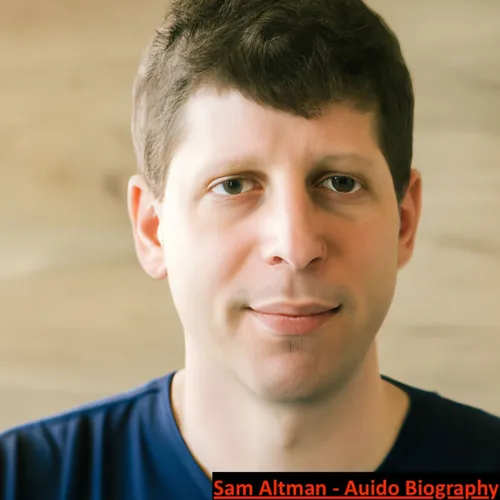Sam Altman: Fatherhood, Trillions in AI Spending, and Shaping the Future
- Author
- Quiet.Please
- Published
- Tue 26 Aug 2025
- Episode Link
- https://www.spreaker.com/episode/sam-altman-fatherhood-trillions-in-ai-spending-and-shaping-the-future--67518649
Sam Altman BioSnap a weekly updated Biography.
Sam Altman has dominated headlines and boardroom chatter this August with a mix of personal revelation, strategic pivots, corporate drama, and bold proclamations on the state of AI. Just days ago, Altman reflected publicly on how becoming a father earlier this year has changed his outlook, telling Fortune that colleagues are “very happy you’re having a kid, because I think you’ll make better decisions for humanity as a whole” and likening the rapid pace of AI’s evolution to watching his own child grow. These remarks come as OpenAI moves ahead with Stargate, its massive new data-center project, pitched by Altman as “the biggest infrastructure project in history,” and with GPT-5 attempting to steady itself after what Altman admitted was a botched launch and lukewarm user reception. Business Insider and Ars Technica noted his rare public warning about an “AI bubble,” saying the current market is “insane” and not rational, with investors “overexcited”—a statement that immediately rattled tech stocks and drew both skepticism and support from other tech luminaries.
On the business front, Altman disclosed at a San Francisco dinner with reporters that OpenAI expects “trillions” in infrastructure spending to keep up with AI demand, while still maintaining it could run profitably on existing products if it stopped developing new ones—a pointed comment amid the industry’s uneasy tension between hype and value. Meanwhile, Altman’s own financials piqued curiosity with Fortune reporting his annual OpenAI salary is just $76,001 despite his billionaire status, much of it stemming from early investments in companies like Reddit, Airbnb, and Helion Energy.
In policy and geopolitics, Altman gave a headline-grabbing interview to Champaign Magazine where he warned the US is underestimating China’s AI ambitions, saying the global AI race is more competitive than most acknowledge—a comment that dovetails with ongoing debate in Washington over export controls.
Socially, Altman mused on his vision for the future of work in a widely shared conversation with comedian Theo Von, proposing a move from universal basic income to what he calls “universal extreme wealth,” suggesting that all people should have an ownership stake in AI-generated value, possibly distributed via digital tokens. He also set the internet alight by suggesting at a press event that maybe the next CEO of OpenAI would be an artificial intelligence—fueling speculation about his long-term plans and hinting he may prefer a more strategic, board-focused role soon.
Finally, Sam Altman made waves in pop culture: Andrew Garfield was spotted filming on set as Altman in the upcoming biopic Artificial. And with OpenAI’s public promise of mind-blowing new open source models and pending video-creation tools for ChatGPT, the world continues to watch Altman not just as a CEO, but as the defining face—and villain or hero—of the AI age.
Get the best deals https://amzn.to/3ODvOta
